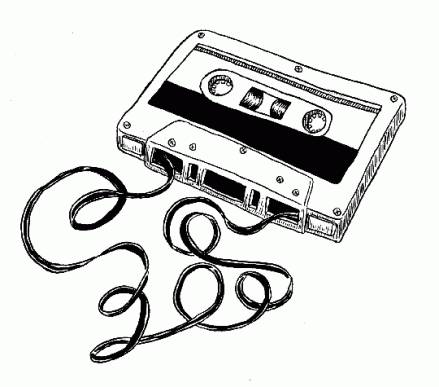The mix: it's more than just music
A few weeks ago, I wrote a column about my philosophy on purchasing records and what I believe are the benefits of doing so. In a similar way, I also feel strongly another medium that we are missing out on because of our dependence on music streaming: the mixtape. Otherwise known as a mix. And quite possibly known as a mix CD for many of us.
But what makes it different from creating a Spotify playlist? To some, there may not ever be a difference as far as what it means to them. But to me, it's not even close. One of my favorite films, 'High Fidelity', and one of my favorite books, 'Love Is A Mixtape', eloquently describes my fascination with creating mixes.
Expressing yourself
In the 2000 film adaptation of Nick Hornby's 'High Fidelity', John Cusack plays a miserable record store owner who can't seem to get it right with relationships. He does, however, possess a solid philosophy on the importance of making mixes.
The main idea presented by Cusack's character is that making a mixtape ' yes, he actually recorded music from his vinyls onto tape ' is much more than just sharing music. It's a way of expressing yourself to someone using other people's art.
When creating a mix, he says, you almost want to treat it like you're creating a film to guide someone: start with a hook, take a few minutes to relax, hit a high and then hit a low before you resolve on a high note. Remember: when creating a mix for someone you're expressing something about yourself which can allow for a narrative.
One of my closest friendships, I believe, derives from this form of expression. Being the nerd I am, I offered to make this new friend a mix CD last fall. I decided to take that a step further and actually write brief descriptions of why I chose the songs I chose. The next week, I received the same sentiment in return. This continued for months, and in retrospect, I realize how much we learned about each other through giving a narrative through music.
Making a mix to preserve the moment
Rolling Stone columnist Rob Sheffield wrote a book in the mid-2000s about his experience with the love and loss of his wife. 'Love is a Mixtape', rather than being structured chronologically, was structured around a dozen or so mixtapes from multiple seasons of life.
Many of the mixtapes he wrote about were from music exchanges with his wife. The tapes were memoirs of times like road trips, financial lows and even when they first met. In the book, he also went into detail about different purposes you can fill with a mixtape in your relationships. He gave different categories such as 'Hey, you like music and I like music' and 'I want you'.
Sheffield's opening to his book describes a moment where he is sitting on his apartment's windowsill at a late hour, drinking coffee and perusing through his late wife's mixtapes. It wasn't a moment of grief. It was a moment of nostalgia, of memoriam. The point is that by taking something sacred to us that can be intangible ' such as the music we enjoy with others ' and making it tangible through something as simple as a CD or tape, we can preserve the sweeter moments in life.



